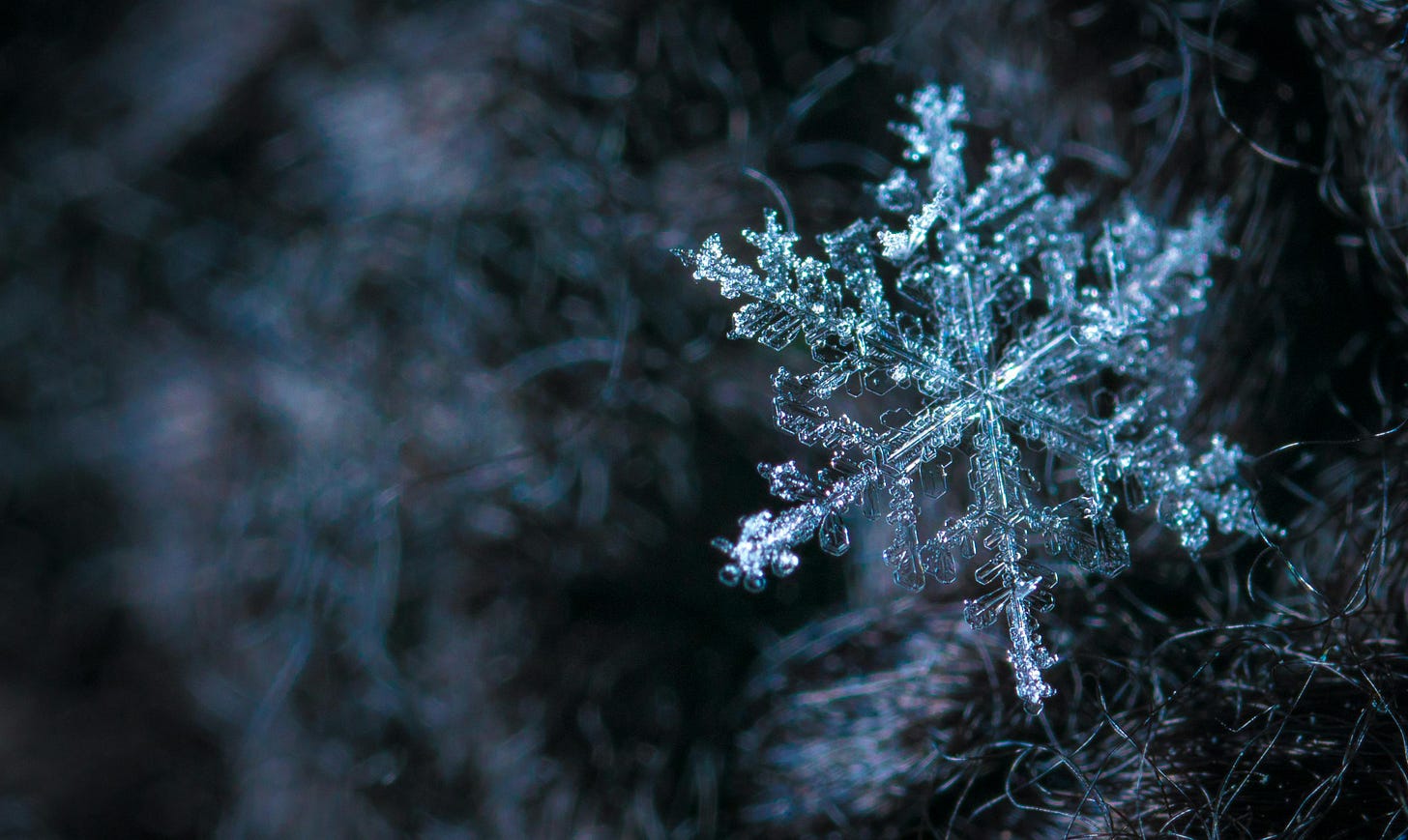
We’ve arrived at the shortest days of the year, the ones often most packed with activity. It’s as if we fear the waning light, and we do: Holidays celebrate the return of daylight’s hope and possibilities. As a child, I felt the magic of those rituals until, at eleven, I grew cynical – and not just about Christmas and all it represented. Santa, at that point, was long in my rearview mirror.
I had a lot to carry at that age, and much of it was unseen or unacknowledged. My lonely family life and a world that seemed in many ways hostile and confusing had already left lasting imprints. When it’s darkest, hope feels so distant. What does it take to summon back the light?
Last night, the longest night of the year, I felt a bit like that. Grumpy. Overtaxed. Too busy. Overwhelmed and resentful. And then, blessed be, a spark: “If I’m feeling like this,” I thought to myself, “it’s because I’m caught up in old habits and not doing the things that light me up.” It’s so easy to blame everyone and everything else – but truly, it’s me, doing instead of being.
I say this despite The World Chaos. I feel it’s my human responsibility to keep my light on in the darkness: To love, to laugh, to cry, to be soft and tender. It took me years – decades! – to shed the cynicism that blossomed like ink in water within me when I was eleven. And sometimes, in my darkest days, it creeps back. It’s a resistance to being here: To feeling.
There are so many reasons to have our guards up. Histories upon histories of injustice, violence, power grabs, or indifference build up in our psyches, in our bodies. I love Joy Harjo’s Fear Poem, or I Give You Back. She prefaced it in a 2016 Facebook post: “This poem came when I absolutely needed it. I was young and nearly destroyed by fear. I almost didn't make it to twenty-three. This poem was given to me to share.”
It begins:
I release you, my beautiful and terrible fear. I release you. You were my beloved and hated twin, but now, I don't know you as myself. I release you with all the pain I would know at the death of my children. You are not my blood anymore.
She goes on to list a legion of terrible wrongs done to her ancestors and other Native people. The kinds of things that tie souls and bodies in knots for generations. The kinds of things that can convince people of their smallness, their unworthiness. That can shut people down. In Joy Harjo’s performance, the poem becomes an incantation, and an invocation of humanness. Of love, tenderness. Of worth.
We all have our own darkest days, and sometimes it can be easier to just turn the light off inside rather than face the magnitude of loss, change, oppression, or whatever it is we’re facing. During these times, the cynicism rises. The armor stiffens. Sometimes when I feel like this, my stepdad asks me, “What can you do?”
The answer is not in doing. It is in accepting and feeling the reality we face. Soften to the grief, or let the anger rise. Let it be.
My friend Sara forwarded me a recent Daily Dharma from the Buddhist journal Tricycle. Wang Ping writes in the essay Riprap: “This is how the world runs: Everything we need is already there. All we have to do is trust and let things happen.”
But in order to do that lucidly (from the Latin “lucidus”: shining or light), I must cherish all I have been given. This challenges me when my daily agenda overflows with to-do items. When others’ needs continually get in the way of my own. Cherishing is receptive, not proactive. To cherish, often we must come to rest.
I’ve been blessed in thousands of ways. I am blessed every single day. Glimmers of light, of connection, of awakening. Love, love, love.
Another piece of Joy Harjo’s Fear Poem:
You are not my shadow any longer. I won't hold you in my hands. You can't live in my eyes, my ears, my voice my belly, or in my heart my heart my heart my heart
This morning, still glum, shoulders rigid, I sat to meditate. I lit a candle, I held crystals in my hands. My breath traveled down past my stiffened shoulders. And there the light was! It glowed, quietly, below my ribcage. My breath had moved through my armor and found my soft belly. I did not make that happen; I did not even intend it – although the safe ritual of meditation prepared the ground. We can’t enforce softness. It’s a gift. We can make ourselves ready to welcome it, though. For me, that means quiet time, moving my body, enough sleep.
I wish you softness as well as light this season. Breathe deep. Light candles. Hold hands. Live in your body. Eat, drink, and be merry.
Ocean in a Drop will be back in January. Happy Holidays.




thanks Cate— you hit it right on the head… and I am grateful to you for this. sending love, hope and peace your way…
Thank you for reminding me to breath and smile. I wish you joy, peace and good health for the coming year. Barbara